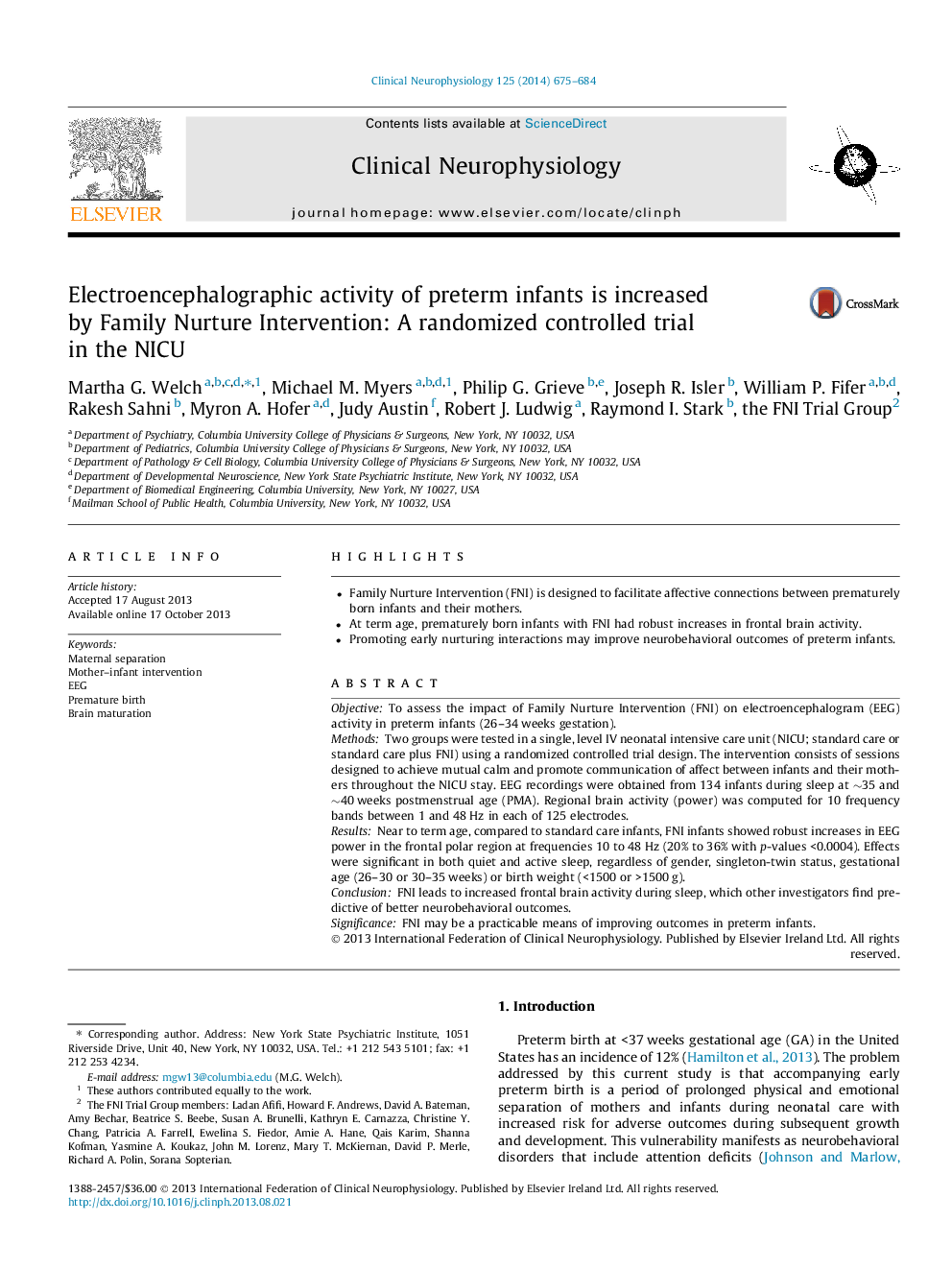| Article ID | Journal | Published Year | Pages | File Type |
|---|---|---|---|---|
| 6008391 | Clinical Neurophysiology | 2014 | 10 Pages |
â¢Family Nurture Intervention (FNI) is designed to facilitate affective connections between prematurely born infants and their mothers.â¢At term age, prematurely born infants with FNI had robust increases in frontal brain activity.â¢Promoting early nurturing interactions may improve neurobehavioral outcomes of preterm infants.
ObjectiveTo assess the impact of Family Nurture Intervention (FNI) on electroencephalogram (EEG) activity in preterm infants (26-34Â weeks gestation).MethodsTwo groups were tested in a single, level IV neonatal intensive care unit (NICU; standard care or standard care plus FNI) using a randomized controlled trial design. The intervention consists of sessions designed to achieve mutual calm and promote communication of affect between infants and their mothers throughout the NICU stay. EEG recordings were obtained from 134 infants during sleep at â¼35 and â¼40Â weeks postmenstrual age (PMA). Regional brain activity (power) was computed for 10 frequency bands between 1 and 48Â Hz in each of 125 electrodes.ResultsNear to term age, compared to standard care infants, FNI infants showed robust increases in EEG power in the frontal polar region at frequencies 10 to 48Â Hz (20% to 36% with p-values <0.0004). Effects were significant in both quiet and active sleep, regardless of gender, singleton-twin status, gestational age (26-30 or 30-35Â weeks) or birth weight (<1500 or >1500Â g).ConclusionFNI leads to increased frontal brain activity during sleep, which other investigators find predictive of better neurobehavioral outcomes.SignificanceFNI may be a practicable means of improving outcomes in preterm infants.
